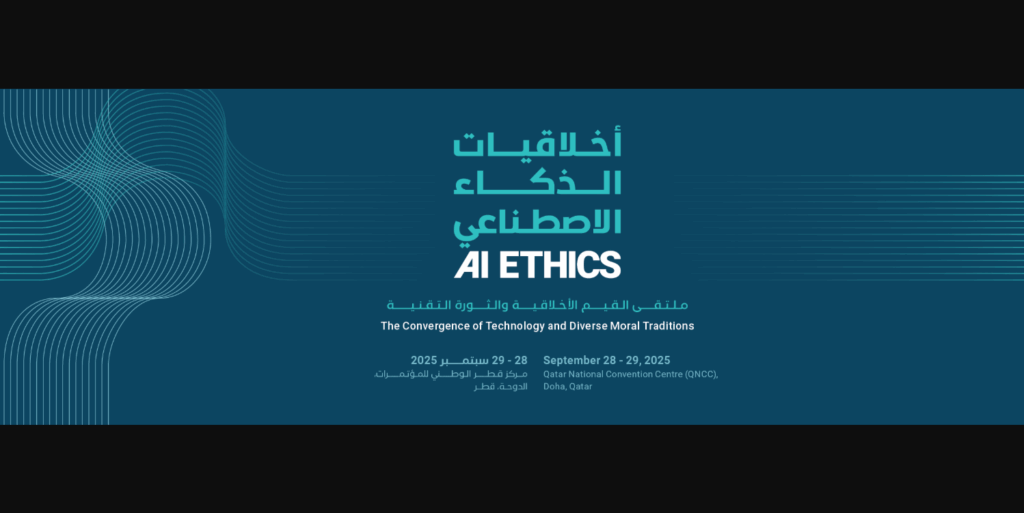Doha is set to host a landmark international gathering on artificial intelligence (AI) ethics, bringing together leading voices from academia, technology, and policy. The two-day conference, organised by Hamad Bin Khalifa University (HBKU), will take place at the Qatar National Convention Center (QNCC) from 28–29 September 2025.
The event, titled AI Ethics: The Convergence of Technology and Diverse Moral Traditions, is expected to serve as a crucial forum for examining how AI is reshaping societies and how ethical frameworks rooted in diverse global values can guide its development.
Organisers say the gathering will feature prominent academics, policymakers, industry leaders, and ethicists who will debate how to ensure innovation in AI does not outpace regulation and cultural safeguards. With disruptive technologies increasingly influencing healthcare, education, finance, urban design, and security, the conference will call for collective responsibility to establish ethical standards and reduce potential harms.
HBKU officials stressed the importance of international collaboration at a time when technological progress is accelerating faster than most regulatory systems. “Meaningful global action is needed to develop ethical guidelines that reflect cultural diversity while protecting human dignity,” they said.
Six thematic areas will frame discussions: healthcare; urban design; security; education; finance; and the future of the workplace. Experts will examine how AI can improve lives while assessing risks ranging from institutional liabilities to unintended community-level impacts.
Among the featured speakers are well-known international figures such as Amr Awadallah of Vectara, Mark Coeckelbergh from the University of Vienna, Yali Cong of Peking University, Munther Dahleh from MIT, David Leslie of The Alan Turing Institute, and Nancy Jecker from the University of Washington. Others include Daniel González-Bootello of Smart City Cluster, Corey Gray of the Smart Cities Council, and Beth McGinty from Weill Cornell Medical College.
The presence of such a wide range of voices underlines the global significance of the gathering. Organisers describe the event as an effort to move beyond regional or sectoral debates and instead to create a platform where cross-cultural, multidisciplinary dialogue can shape AI’s future.
Conference discussions are expected to advance proposals for international ethical standards designed to safeguard individuals and communities. These include frameworks for managing the risks associated with AI deployment in critical areas such as healthcare decision-making, financial oversight, and security infrastructure.
The Doha event is being framed not only as a moment for scholarly and policy exchange but also as a step towards building shared norms in a field often dominated by a handful of powerful corporations and governments. By anchoring AI development in diverse moral traditions, organisers hope to foster innovation that is more transparent, accountable, and inclusive.
The conference is part of HBKU’s broader mission to position Qatar as a hub for global dialogue on science, technology, and ethics. With leading voices expected to debate some of the most pressing challenges of the AI era, the event could help shape the international conversation on how humanity should navigate an increasingly automated world.

